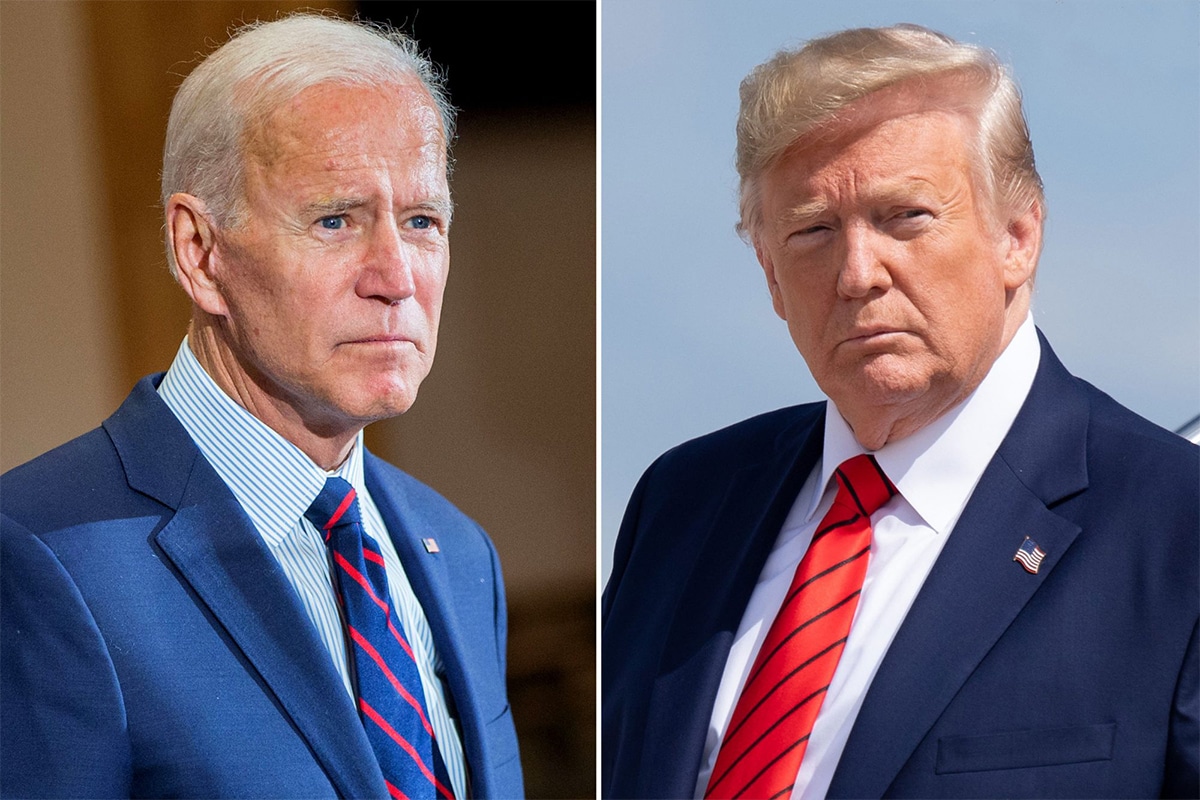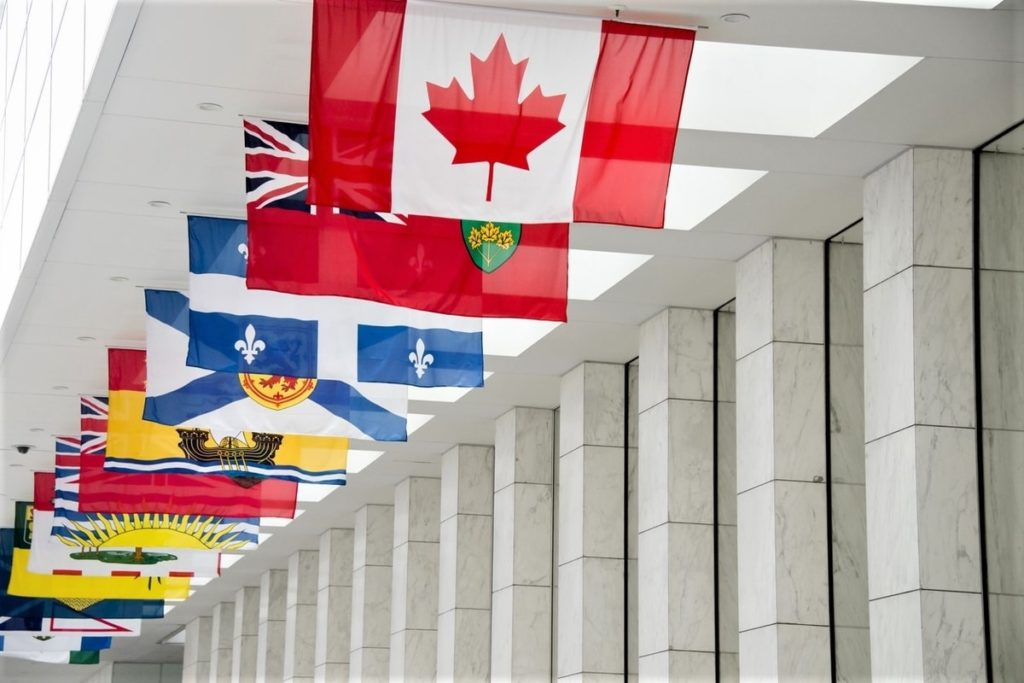Here are some most essential travel guidelines for Indians in the wake of the Covid-19 ‘Omicron’ Pandemic!

For all Indians who are a little worried about the travel guidelines issued by the government under the incidence of the new ‘Omicron’ Covid-19 Variant, here are a few crucial things that you all should know. These guidelines have been spelled clearly on the official website of India Briefing.
Read them all carefully if you are planning to travel anytime soon.
- Hong Kong bars flights from India, U.S., U.K., Australia, Canada, France, Pakistan, and Philippines over Omicron fears, reports The Hindu (Jan.5, 2022).
- Maharashtra’s latest protocols mandate all international passengers, including from UAE, to undergo rapid RT-PCR test on arrival. If negative, passengers will be allowed to leave and stay under 7-day home quarantine. All international passengers who test positive for rapid RT-PCR tests have to wait at the airport for a routine RT-PCR test / undergo institutional quarantine. According to the new guidelines, all symptomatic passengers testing positive in Mumbai Airport will be admitted at Seven Hills Hospital. If the prefer admission in a private hospital, they will be transferred to Bombay Hospital or Breach Candy Hospital. “For asymptomatic COVID positive passengers those who can’t pay can be shifted in BKC and Kanjurmarg Jumbo Centers and for those who can pay they can stay in a list of hotels given by the BMC,” said an official.
- Countries reported to be requiring mandatory vaccine booster shots for travelers include Kuwait, Netherlands, Switzerland, France, Croatia, Austria, Greece, and Israel.
- Gulf News is reporting that India is currently making a “day to day” assessment on the resumption of normal international flights. “One has to balance the concerns of public safety and travel,” said Rakesh Kumar Verma, Additional Secretary, Tourism, Government of India. “We will take very expeditious action as and when things improve and the assessment is carried out. I’m hopeful that [full] international travel will resume soon.”
- The West Bengal state government has announced a ban on all international direct flights coming from the United Kingdom to Kolkata, starting January 3, 2022.
- Starting January 1, 2022, India’s air bubble arrangement with Saudi Arabia will be in effect. India now has air bubble agreements signed with 34 countries.
- On December 24, the Union Ministry of Civil Aviation (MoCA) issued new guidelines for domestic and international passengers traveling to Delhi given the rise in COVID-19 cases and Omicron outbreaks around the world and country.
As per the fresh guidelines, thermal screening of all passengers will be done on arrival. The airport will also oversee random sample collection of passengers arriving from across the states that have reported a spurt in COVID-19 cases. Passengers will only exit after the sample collection.
Passengers who test positive for COVID will be quarantined at home/COVID care centres/community health centres/hospital for 10 days.
The Airport Authority of India has issued guidelines for arriving passengers – by region. The PDF links may be accessed here:
COVID Guidelines India Northern Region 24-12-2021
COVID Guidelines India Western Region 24.12.2021
COVID Guidelines India Southern Region 24-12-2021
COVID Guidelines India Eastern Region 24-12-2021
COVID Guidelines India North East Region 24-12-2021 - It is mandatory for international passengers arriving from ‘at risk’ countries to pre-book the RT-PCR test at six Indian airports – Delhi, Mumbai, Kolkata, Chennai, Bengaluru, and Hyderabad. Once this system is stabilized and able to facilitate the pre-booking procedure on the Air Suvidha portal efficiently, the rule could get extended to other airports.
- India has reached an air bubble agreement with Australia. According to reporting from Livemint: “Australian airline Qantas has recently started flights between Sydney and New Delhi. The airline is also set to start flights between New Delhi and Melbourne before Christmas. Air India also operated direct commercial flights connecting New Delhi with Melbourne and Sydney before scheduled international flights were suspended by the Indian government. Air India flights between India and Australia will resume in coming days, said a senior official with the airline.”
- India’s Director General of Civil Aviation has extended the suspension of international scheduled commercial flights till January 31, 2022. The civil aviation body’s circular stated: “In partial modification of circular dated 26-11-2021, the competent authority has decided to extend [India’s] suspension of Scheduled International commercial passenger services to/from India till 2359 hrs of 31st January, 2022.”
- As of December 7, 2021, India’s Civil Aviation and Health Ministry has made contactless self-declaration at Air Suvidha Portal mandatory for purpose of contact tracing. Exemption forms from the Air Suvidha portal has been discontinued. All international passengers arriving in India must fill in all the details.
All international passengers must declare their current health status on the Air Suvidha Portal and submit the required documents – a copy of the passport, PCR negative certificate from a test conducted within 72 hours of departure, and the vaccination certificate – before boarding. For immigration, the copy received by e-mail is essential on arrival in India and must be verified at the APHO counter (Airport Health Organization).
All applications from ‘At Risk’ countries are marked with H and red band and others are green. At Risk countries visited in the last 14 days must also be stated – a multi-select drop-down field is available on the application.
Passengers from At Risk countries are advised to pre-book their test on arrival; the link to the respective testing facility is provided to the passengers on submission of the Self Declaration Form (SDF).
As of November 26, 2021, the at-risk countries are: United Kingdom, South Africa, Brazil, Bangladesh, Botswana, China, Mauritius, New Zealand, Zimbabwe, Singapore, Hong Kong, and Israel. - 108 countries recognize India’s COVID-19 vaccination certificate for travel purpose as per data available on December 6, 2021.
- The state of Karnataka has issued fresh international and domestic travel guidelines after reporting two cases of Omicron. According to Kempegowda International Airport (KIA) in Bengaluru (Bangalore), these include the policy of randomly testing 2 percent of the passengers travelling from countries that are not in the ‘at risk’ category at their port of entry on arrival. ‘At risk’ countries include all European countries, South Africa, Brazil, Botswana, UK, China, Mauritius, New Zealand, Singapore, Zimbabwe, Hong Kong, and Israel.
- As per the Health Ministry update on November 30, 2021: Countries marked ‘at-risk’ are countries in Europe, including The United Kingdom; South Africa; Brazil; Botswana; China; Mauritius; New Zealand; Zimbabwe; Singapore; Hong Kong; and Israel. Travellers from these countries would need to follow additional measures on arrival in India, including post-arrival testing.
- Livemint is reporting on the Director-General of Civil Aviation’s (DGCA) Monday night notification: From December 1, passengers who are flying from and transiting via countries that are affected by the new COVID-19 variant ‘Omicron’ – will need to produce a mandatory negative report of the RT-PCR test conducted on arrival in India. Without this negative RT-PCR report, they will not be allowed to leave the airport and will be directed to government-approved quarantine centers. The DGCA has ordered airports to ensure that there is a separate holding area for passengers from at-risk countries as they await their RT-PCR test results.
- NDTV is reporting: “Travelers from 12 at-risk countries will be subjected to testing and extra surveillance. They will need to take the Covid test post-arrival and wait for results at the airport before leaving or taking any connecting flights. If the test is negative, they’ll follow home quarantine for 7 days, re-test on the 8th day and if negative again, further self-monitor for the next 7 days.” As of November 26, 2021, the at-risk countries are: United Kingdom, South Africa, Brazil, Bangladesh, Botswana, China, Mauritius, New Zealand, Zimbabwe, Singapore, Hong Kong, and Israel.
- From December 1, 2021: International passengers traveling to India have to submit their 14-day travel history, upload negative COVID-19 RT-PCR test results, and submit a self-declaration form on the online Air Suvidha portal. The COVID RT-PCR test must be conducted within 72 hours of the journey.
- New guidelines for international arrivals to India – effective from November 30, 2021 – can be accessed here: https://www.mohfw.gov.in/pdf/GuidelinesforInternationalarrivalsdated30thNovember2021.pdf
An easy reference chart has been provided by the government here: https://www.mohfw.gov.in/pdf/Algorithmforrevisedguidelinesforinternationalarrivals30thNovember2021.pdf - On November 29, the Home Ministry informed: “Decision on effective date of resumption of scheduled commercial international passengers service to be reviewed as per evolving global scenario.” As reported in The Hindu BusinessLine: “The genomic surveillance for variants is to be further strengthened and intensified. Airport Health Officials (APHOs) and Port Health Officials (PHOs) to be sensitised for strict supervision of testing protocol at airports/ports,” a spokesperson of the Home Ministry tweeted after a meeting called by the Home Secretary Ajay Bhalla with various stakeholders, including health experts, on Sunday.
- The Indian Express reports: “Just a day after the Ministry of Civil Aviation announced the resumption of international scheduled commercial flights effective December 15, Prime Minister Narendra Modi has directed senior government officials to “review” plans for easing international travel restrictions in light of the emergence of new evidence regarding the Omicron variant of Covid-19.” The Omicron or B.1.1.529 variant was first reported to the World Health Organization (WHO) from South Africa on 24 November 2021.
- On November 26, India’s civil aviation ministry announced the country resume normal international flights from December 15, 2021. However, 14 countries that have been identified as ‘at risk’ will not see full resumption of international flights – UK, France, Germany, Netherlands, Finland, Singapore, South Africa, Brazil, Bangladesh, Botswana, China, Mauritius, New Zealand, and Zimbabwe. Travel to these 14 at-risk countries will continue to be via air bubble arrangements.
- Reporting by NDTV: “International flight operations are expected to return to normal “by the end of the year”: Rajiv Bansal, the Aviation Ministry Secretary – quoted by state news agency PTI on Wednesday, November 24, 2021.
- Speaking at the Confederation of Indian Industry’s (CII’s) Global Economy Policy Summit, India’s civil aviation minister said that India will likely resume regular international flights towards the end of 2021. Jyotiraditya Scindia said: “We are evaluating the process. We are coming back to normalcy. First, we allowed 100% passenger capacity in our domestic flights and now we allowed in-flight meals in those flights.”
Currently, the ban on scheduled international commercial passenger flights has been extended by the DGCA until November 30, 2021; only international scheduled flights on selected routes approved by the competent authority on a case to case basis and cargo flights are operating.
India has suspended normal international travel since 2020 when the COVID pandemic struck, allowing only approved flight routes to operate. Various international airlines and Indian aviation and hospitality industry stakeholders have asked the Indian government to rethink its international travel policy as the pandemic situation has stabilized and vaccination programs are in full swing. - Australia is opening its borders for certain categories of fully vaccinated international travelers like students, skilled migrants, working holidaymakers, provisional family visa holders, and humanitarian visa holders from December 1, 2021. Australia has approved Covaxin and Covishield vaccines. Requirements include proof of vaccination status and a negative COVID-19 PCR test taken within three days of departure; compliance with the quarantine norms of the traveler’s respective state/territory destination in Australia is also fully expected.
- It is being reported by The Economic Times that India and Singapore are in talks to resume two-way commercial flights – “Singapore is in talks with the Ministry of Civil Aviation and the Ministry of External Affairs to restart scheduled commercial services with two daily flights each from Chennai, Delhi and Mumbai.”
Currently, only repatriation flights are scheduled – through Air India under the Vande Bharat mission. Singapore earlier announced that starting November 29, 2021, it will open the Vaccinated Travel Lane (VTL) for India, which will remove the need for quarantine for vaccinated passengers. - Various stakeholders are asking the Indian government to rethink its air bubble strategy as nearly 100 countries now accept Indians vaccinated with WHO-approved vaccines, including Covishield and Covaxin. Air bubble agreements are “end-to-end”, meaning they don’t apply to a third country on the travel route and can lead to expensive breaks in international journeys for travelers. The Ministry of Civil Aviation and the Ministry of External Affairs have so far not commented on the matter.
- On Thursday, the federal government relaxed guidelines for international travelers and exempted children below the age of five years from undergoing pre- and post-arrival COVID testing at airports – as reported by media. This is valid from November 12, 2021 until further notification from authorities.
- 96 countries have agreed to mutual acceptance of COVID vaccination certificates with India. For Indians traveling abroad, the international travel vaccination certificate can also be downloaded from the CoWIN portal.
- Full service carrier Vistara has started non-stop flight services to Paris from Delhi under the air bubble agreement between India and Europe, according to reporting from The Economic Times. Under the air bubble pact, Vistara’s Boeing 787-9 (Dreamliner) aircraft will fly twice a week between Delhi and Paris – on Wednesday and Sunday. London, Frankfurt, Dubai, Doha, Sharjah, and Male are the other international destinations covered by Vistara, which is a joint venture between Tata Sons and Singapore Airlines.
- The US will be lifting travel restrictions on foreign countries from November 8, Monday. Travelers must show proof of vaccination (WHO-approved vaccines); unvaccinated minors will be subject to testing requirements; and all travelers will need to show proof of a negative COVID-19 test 72 hours before departure to the US. See here for Reuters coverage of the changing rules.
- Air India will offer non-stop flights between Delhi and Sydney starting November 15, 2021. Air India will operate the thrice-a-week service on the Delhi-Sydney-Delhi route under the Vande Bharat Mission. Australia has also formally recognized Covaxin, India’s COVID-19 vaccine.
- India has extended its suspension of scheduled international flights once again, to November 30, 2021. However, international scheduled flights may be allowed on selected routes by the competent authority on a case-to-case basis, such as the Vande Bharat (repatriation flights) and air bubble arrangements ( with 28 countries). International all-cargo flights will also not be affected.
- Fully vaccinated international travelers arriving in India will be allowed to leave the airport and will not be required to undertake home quarantine, starting today, if they come from countries that have a mutually agreed acceptance agreement with India regarding World Health Organization (WHO) approved vaccines. There are, however, additional measures for passengers from countries at risk like South Africa, Brazil, Bangladesh, Botswana, China, Mauritius, New Zealand, and Zimbabwe.
- According to the Singapore health ministry as quoted by The Strait Times, all travelers with a 14-day travel history to Bangladesh, India, Myanmar, Nepal, Pakistan, and Sri Lanka will be allowed to enter or transit through Singapore from October 26, 2021 23:59 hours. “Travelers from these countries will be subject to Category IV border measures. They will still be required to serve their 10-day stay-home notice (SHN) at dedicated SHN facilities.”
- Category-A list of countries: This list includes countries that have an agreement with the Indian government for mutual recognition of the vaccination certificate for fully vaccinated individuals, either with a nationally recognized or WHO recognized vaccine, and those countries that exempt Indian citizens (i.e. provide institutional quarantine-free entry) if they are fully vaccinated with nationally recognized or WHO recognized vaccines. The list includes the UK, France, Germany, Nepal, Belarus, Lebanon, Armenia, Ukraine, Belgium, Hungary, and Serbia. (See PDF here).
- Under India’s revised guidelines (see PDF here), travelers from certain specified countries (based on the epidemiological situation of COVID-19 in those countries), such as UK, South Africa, Brazil, Bangladesh, Botswana, China, Mauritius, New Zealand, and Zimbabwe (as on October 20, 2021), would need to follow additional measures on arrival, including post-arrival testing.
- Latest home quarantine rules: The revised guidelines state that travelers must home quarantine for 7 days and get a retest done on 8th day of arrival, and if negative, continue to self-monitor their health for the next 7 days. (See PDF here).
- Vaccine recognition: Travelers coming from countries that have a mutual vaccination status acceptance arrangement with India or fully vaccinated with a WHO-approved COVID-19 vaccine would be allowed to leave the airport and do self-monitoring for 14 days after arrival. (Fifteen days must have elapsed since completing the vaccination schedule.) All partially vaccinated or unvaccinated travelers will be mandatorily asked to take a post-arrival RT-PCR test, after which they will be allowed to leave the airport. (See PDF here).
- India has revised its guidelines for international travelers, which will come in effect starting October 25, 2021. All passengers boarding a flight to India must produce a mandatory COVID-19 RT-PCR negative report and upload the report and a self-declaration form on the Air Suvidha portal before their scheduled trip. The RT-PCR test must be conducted within 72 hours before undertaking the journey; failure to do these will make the traveler liable for criminal prosecution. The new guidelines will replace the rules notified on February 17, 2021. (See PDF here).
- India has withdrawn the travel restrictions it had imposed on UK travelers (revised order issued on Wednesday, October 13, 2021). “Revised guidelines for UK nationals arriving in India issued on October 1, 2021, stand withdrawn, and earlier guidelines on international arrival dated February 17, 2021, shall be applicable for those arriving in India from the UK”, the Ministry of Health & Family Welfare notified.
- India’s new visa norms stipulate that visas will be granted to foreigners only if they use water and air routes, not land routes. The Ministry of Home Affairs has allowed the gradual resumption of international travel to start from October 15, 2021 and tourist and e-visas will be issued for only a single entry per month. From November 15, all individual foreign nationals (on fresh tourist visas) will be allowed to enter India after observing prevailing COVID-19 protocols as notified by the Ministry of Health & Family Welfare.
- The Indian High Commission in Dhaka, Bangladesh tweeted that the frequency of flights between India and Bangladesh will increase starting October 15, 2021 as per Air Bubble arrangement.
- Starting October 11, 2021, travelers from India to the United Kingdom who have received both doses of Covishield will not need to take pre-departure and day-8 PCR tests or undergo 10-day quarantine at a declared address.
- Indian media report on changes to UK travel advisory for Indians after the UK High Commissioner to India, Alex Ellis, tweeted on Thursday that fully vaccinated Indian travelers with both doses of Covishield would no longer need to quarantine in the United Kingdom, starting from October 11, 2021. The announcement follows a tussle between the two countries on the recognition of India’s vaccine program and certification and New Delhi’s tit-for-tat move to implement similar restrictions on British travelers to the country as Indians have been subject to when traveling to Great Britain. Now, India will be added to Britain’s list of countries and territories with approved proof of vaccination at 4 am on Monday, October 11.
- The Union Home Ministry announced on Thursday that India will allow foreign tourists traveling by chartered flights (Vande Bharat and air bubble flights) from October 15, rest from November 15, 2021. Foreigner tourists will be allowed to come in on non-charter flights from November 15 unless the extended restrictions on scheduled flights is substantially lifted. See the Home Ministry’s press briefing here and reporting by the Economic Times here.
- The Hindustan Times reporting on October 2: “Australia’s visiting trade and tourism minister Dan Tehan said foreign students will be able to start “returning towards the end of this year and the beginning of next year”, ahead of the start of the first semester in February-March 2022. The Therapeutic Goods Administration (TGA) of Australia listed Covishield and China’s Coronavac (Sinovac) as “recognised vaccines” after an initial assessment of data on protection offered by the two jabs.”
- The state of Kerala has implemented new quarantine rules for international travelers from October 4, 2021. All international travelers, irrespective of their vaccination status, must take RT-PCR tests on arrival in the state. According to the new guidelines, travelers from the UK will have to undergo 10-day quarantine at home or the destination address. Passengers from South Africa, Brazil, and Europe will have to undergo a 7-day mandatory quarantine on arrival. See media report here.
- The UK government updated its travel advisory for UK travelers to India after New Delhi’s decision to impose reciprocal curbs on visitors from the UK starting Monday (October 4). From October 4, UK travelers arriving in India, irrespective of their vaccination status, will undertake COVID-19 RT-PCR test on arrival at the airport and on day 8 after arrival at their own cost and will undergo mandatory quarantine at home or at the destination address for 10 days after arrival in India. The Indian government’s move follows England’s new travel norms coming into force on Monday, which require even fully vaccinated Indian travelers to the UK to undergo the same level of PCR tests and quarantine restrictions as unvaccinated travelers. This is because the UK government is yet to officially recognize India’s vaccine certification.
- For evacuation flight schedule Phase 14 (October 1, 2021 to March 26, 2022), see Air India Vande Bharat Mission here (download PDF): https://www.airindia.in/images/pdf/VBM-schedule-dtd-30sep2021-PHASE14.pdf.
- CoWin, India’s digital platform for COVID-19 vaccination, is allowing travelers to download an international version of their COVID-19 vaccine certificate, which is compliant with WHO’s international travel guidelines. This feature went live on September 30, 2021, and allows fully vaccinated individuals to update their existing photo identity to passport number and date of birth to get their International Travel Certificate. See website: https://www.cowin.gov.in/
- On Tuesday, a notice from the Director General of Civil Aviation (DGCA) extended the suspension of scheduled international commercial passenger flights to another month, that is, till October 31, 2021. The notice states: “In partial modification of circular dated 26-06-2020, the competent authority has further extended the validity of circular issued on the subject cited above regarding scheduled international commercial passenger services to/from India till 2359 hrs IST of October 31, 2021. This restriction shall not apply to international all-cargo operations and flights specifically approved by DGCA”.
- Times of India is reporting: “Direct connectivity has finally resumed between India and Canada after almost five months”, starting September 27, 2021. New protocol regarding WHO-approved vaccination status and RT-PCR / testing requirements have been released (https://travel.gc.ca/destinations/india#flights).
- The United States will re-open to air passengers who have received COVID-19 vaccines from China, India, and UK, among other countries, from early November, the White House said Monday. The Economic Times reports: “In the coming weeks, CDC will be issuing a contact tracing order requiring airlines to collect current information from each US bound traveler, including their phone number and email address. This will enable CDC and state and local public health officials to follow up with inbound travelers, and those around them as someone has potentially been exposed to COVID-19 or other pathogens.”
- The Economic Times reporting that the e-visa facility for the UK and Canadian citizens has been withdrawn from the first week of August this year. The treatment appears to be based on reciprocal considerations. As per a Ministry of Home Affairs official, “Now, they have to apply for a regular sticker visa at the Indian embassy. Tourist visa is already suspended and people visiting India under other categories of visa now have to apply for regular sticker visas.” India has also denied e-visa facility to Chinese nationals due to the Galwan Valley incident.
- The UK will be soon overhauling its traffic light system, with foreign countries now listed as either ‘red’ or OK for travel (rest of the world). The amber list has been scrapped. A relatively relaxed testing regime has been introduced – changed to a cheaper lateral flow version, but still mandated even for fully vaccinated passengers; pre-departure tests will be rolled back. However, testing for unvaccinated passengers from non-red countries will include pre-departure tests, day 2, and day 8 PCR tests. Test to release remains an option to reduce the self-isolation period. Eight countries will move from the red list on September 22 and the rules for international travel to England will change on October 4, 2021. See here for the complete UK government notification.
- Media reports are saying the UK is expected to overhaul its travel guidelines starting October 1, after the country’s health minister expressed that “he wanted to get rid of” expensive PCR tests for travelers as soon as possible. A new system based on vaccination status may be introduced, instead of the current traffic light system where countries are categorized as green, amber (like India), and red. The UK’s Heathrow Airport saw a 71 percent drop in footfall in August when compared to the same month before the pandemic struck.
- A reminder that the validity of Indian visa or stipulated period of stay for foreign nationals who have been stranded in India due to the pandemic is till September 30, 2021, having been extended by a month. For further visa extension, the foreign national can apply for extension of visa on the online e-FRRO platform on a payment basis, which would be considered as per guidelines. “Before exiting the country, they may apply online for an exit permission on e-FRRO portal, which would be granted by the FRRO/FRO concerned on gratis basis without levy of any overstay penalty,” the Home Ministry has said.
- Air India announced on September 6 [see Twitter announcement here] that it is resuming flights to Saudi Arabia from India. “Air India opens bookings from India to the Kingdom of Saudi Arabia (KSA). Before booking tickets kindly read the travel guidelines carefully. Bookings opened through Air India Website, Booking Offices, Call Centre & Authorised Travel Agents. It will be the sole responsibility of the passengers to ensure his/her eligibility to enter the destination country. Air India will accept no liability in this regard”.
- Kuwait will resume direct commercial flights with India on Tuesday, September 7, the country’s civil aviation authority said on Monday. Passengers should note travel guidelines.
- Travelers from India can fly to 49 cities across 18 countries in September under the Air Bubble arrangements. However, the Ministry of Civil Aviation clarified that the schedules for these flights are valid only till September 30. “These flights can be booked through Air India website, Air India offices, and Travel Agents”, it stated, further adding that the schedule will also depend on the COVID-19 situation, and thus could change at short notice. See here for the full list of cities with which India has an Air Bubble agreement.
- Flight operations between India and Bangladesh have resumed under the Air Bubble arrangement. The Ministry of Civil Aviation (MoCA) said: “Passengers traveling from Bangladesh to India shall be mandatorily subjected to self-paid confirmatory molecular tests on arrival at the Indian airports concerned (port of entry). Therefore instead of a blanket restriction of 140 passengers per aircraft it is proposed that the capacity may be restricted to a specific percentage of the installed seat capacity of the aircraft (say 90 percent or 95 percent).”
- At a press briefing, the federal health secretary Rajesh Bhushan stated that India now requires travelers from these countries to provide RT-PCR negative reports to travel to India and RT-PCR testing upon arrival: UK, EU, Middle East countries, South Africa, Bangladesh, Botswana, China, Mauritius, New Zealand, and Zimbabwe.
Meanwhile, the World Health Organization is also closely monitoring a new COVID-19 “variant of interest” called ‘Mu’ (scientific name: B.1.621), increasingly prevalent in Colombia and Ecuador, and whose multiple mutations could result in resistance to vaccines. Read more from Livemint’s reporting here. - Media reporting that Brihanmumbai Municipal Corporation (BMC) has made the RT-PCR test mandatory for international passengers arriving at Mumbai airport starting September 3, 2021. The provision of institutional quarantine for international air passengers has been scrapped. In the wake of the COVID-19 variant C.1.2, the RT-PCR test is mandatory for international passengers arriving at Mumbai Airport from UK, Europe, Middle East, South Africa, Brazil, Bangladesh, Botswana, China, Mauritius, New Zealand, and Zimbabwe (at the airport at their own cost). All other passengers exiting Mumbai Airport or taking a connecting flight will have to produce a negative RT-PCR test report conducted within 72 hours of the journey. Read more here.
- Maharashtra has tightened the rules for international passengers flying into its capital, Mumbai, and other airports in the state. As per the latest order released by Chief Secretary Sitaram Kunte, all international flyers, even those fully vaccinated, are required to hold an RT-PCR negative test that is not older than 72 hours. Maharashtra state has also removed restrictions on flyers from South Africa, European, and Middle East countries, if they follow the prescribed testing and other pandemic containment requirements.
- India is extending its ban on international flights till September 30, 2021, the Directorate General of Civil Aviation (DGCA) announced on Sunday. As usual, the DGCA clarified, “However, international scheduled flights may be allowed on selected routes by the competent authority on a case-to-case basis”, referring to Vande Bharat and Air Bubble flights. International all-cargo flights shall continue as normal.
- Media are reporting that Indian passport holders can apply for tourist visas to the UAE if they have not been to India in the last 14 days.
- The UAE’s latest rules, as announced by state carrier Etihad Airways, stipulate that Indian nationals who have a visa or residence permit issued by the US, UK, or an EU Member State can access its visa on arrival facility. Further, passengers can take a rapid PCR test six hours before their departure instead of four hours now. Quarantine rules will also apply.
- The US eased its travel advisory for India on August 16, 2021, lowering it to Level 2 – which is considered as safe – following significant improvement in India’s COVID situation. See the Travel Health Notice from the CDC here: https://wwwnc.cdc.gov/travel/notices/covid-2/coronavirus-india
- Canada has extended the ban on direct flights from India for a fifth time this year (since April) – to September 21, 2021. Transport Canada stated: “passengers who travel to Canada from India via an indirect route will need to obtain a pre-departure negative COVID-19 molecular test result from a third country before continuing their journey to Canada… Travellers who have previously tested positive for COVID-19 must provide proof of a positive COVID-19 molecular test conducted between 14 and 90 days before departure, instead of a negative COVID-19 molecular test. This proof must be obtained in a third country before the continuation of the journey to Canada. You might need to seek entry and stay in a third country for at least 14 days…”. See report in The Hindu here.
- The Indian Bureau of Immigration noted the specific categories of foreign nationals who are permitted to enter India by water routes or by flights, including those under the Vande Bharat Mission, or ‘Air Bubble’ (Bilateral Air Travel Arrangements) Scheme, or by any non-scheduled commercial flights as allowed by the Ministry of Civil Aviation in its notice MHA O.M. No.25022/24/2020-F.V/F.I dated October 21, 2020. See here for reference.
- The US eased travel restrictions for India in late July, and has listed India against a Level 3 Travel Health Notice, lowering it from the highest, Level 4.
- UK moves India from its “red” to “amber” travel list. From August 8, Sunday 4am local time, fully vaccinated passengers traveling from India will not be subjected to compulsory 10-day hotel quarantine. The legal rules stipulate testing requirements and quarantining at home/in place as well as eligibility for exemptions.
- Spain will allow tourists from India if they are fully vaccinated at least 14 days before travel. Travelers must have been inoculated with a vaccine approved by the WHO or the European Medicines Agency.
- Reuters reporting the UAE has lifted its ban on transit flights, including from India and Pakistan. The UAE’s National Emergency and Crisis Management Authority (NCEMA) stated on its official Twitter handle that passengers traveling from countries where flights had been banned would be able to transit through its airports from August 5 if they presented a negative PCR COVID-19 test taken 72 hours prior to departure. Final destination approval would also have to be provided, NCEMA added. UAE airports will be arranging separate lounges for transiting passengers.
- Air India released its Evacuation / Repatriation Flight Schedule (Vande Bharat Mission) for Phase 11 – June 1, 2021 to October 30, 2021. To download the PDF of the schedule, click here.
- India has once again extended the ban on scheduled international flights, till 31 August, 2021. Cargo flights, air bubble routes, and repatriation flights shall continue their services.
- India-UAE flights will stay suspended till August 2, as per a notification from UAE national carrier, Etihad Airways.
- The Economic Times has noted countries that are now open to travelers from India, and their requirements of vaccination or an RT-PCR test.
- Both the Dubai-based Emirates and the Abu Dhabi-based Etihad Airways have extended the suspension of their flight services from India, Pakistan, and Bangladesh to the UAE till July 31, 2021.
- The US has made changes to its travel advisory for India, lowering it from the highest Level 4, which means no travel, to Level 3, which urges citizens to reconsider travel.
- Travel restrictions for Indian passengers planning to travel to Canada will extend for another month, to August 21.
- Media reporting that France will allow international travelers who have received AstraZeneca’s Indian-manufactured Covishield vaccine into the country starting July 18, Sunday. 15 European countries have now recognized Covishield.
- Media is reporting that flight bookings from India to Dubai are open, with dates starting July 15.
- The Indian high commission in Ottawa has requested Canada to lift the ban on direct flights from India, citing inconvenience caused to passengers and Indian students. The ban has been in place since April 22 this year and was extended twice.
- India’s private airline Go First (formerly GoAir) has announced the resumption of international flights to the Maldives from July 15, 2021, as per media reports.
- Germany and Maldives are set to allow entry of Indian travelers. Both countries have also allowed non-essential travel from India, as per media reports.
- Germany’s federal health agency, the Robert Koch Institute (RKI), says India, Nepal, Russia, Portugal, and UK will be reclassified from Wednesday, July 7, meaning any traveler from these countries will be able to enter Germany as long as they observe quarantine rules.
- Air India Express announced its flight schedule from Kuwait and Dammam in Saudi Arabia to India for July-October 2021 under the Vande Bharat Mission.
- India has extended the suspension of scheduled international flights till July 31, 2021: DGCA. The restrictions do not apply to international all-cargo operation flights and international scheduled flights on select routes that have been approved by the competent authority on a case-by-case basis.
- Air India has said it will run direct services between Muscat and Vijayawada “once a week or thrice from the first week of July”. The Vijayawada International Airport resumed international flights to Gulf destinations, such as Dubai, Kuwait, Muscat in June, to Singapore in April.
- NDTV reports: “The European Medicine Agency has not received a request for the approval of Covishield in the COVID-19 ‘vaccination passport’ with the European Union, the EU said today amid concerns among Covishield-vaccinated Indians facing issues with travel to Europe. The European Union has not yet recognised the India-made version of the AstraZeneca-Oxford University vaccine.”
- Emirates is expected to resume flights from India to Dubai July 7 but is awaiting more information on protocols from government authorities: PTI
- Budget carrier Air India Express will operate a total of 64 flights between Malaysia and India in July under Vande Bharat Mission. More below.
- Many EU visa application centers in India have reportedly resumed operations.
- On Saturday, June 19, the UAE announced some ease in travel restrictions. However, only passengers with a valid residence visa and who have received two doses of a UAE-approved vaccine will be allowed to travel to Dubai. Additionally, passengers traveling from India must undergo a rapid PCR test four hours prior to departure. They must undergo another RT-PCR test on arrival in Dubai. Consequently, Indian passengers will be required to observe institutional quarantine until their PCR test result, which usually takes 24 hours.
- Air India Express, Emirates suspend their services from India to UAE till July 6; IndiGo announces new international flight services to Beijing, Moscow, Cairo, Nairobi, Jakarta, and Manila, among others, once COVID-19 restrictions are lifted.
- New repatriation (Vande Bharat) flights announced by India from Israel, Singapore, Sri Lanka, Thailand, Italy, and Myanmar. Vande Bharat flights will operate to October 31, as per the aviation ministry’s latest update.
- India announced special operating procedures for priority vaccination of people traveling abroad for education or employment as well as the contingent for the Tokyo Olympics; the government is allowing early administration of the second Covishield dose in these cases if the travel dates fall before the end of the 84-day gap. CoWin vaccination certificates will be linked to the passports.
- India extends ban on scheduled international flights till end of June 2021.
- Air India has tweeted it is offering various waivers/flexibility to passengers holding tickets for international travel in case of sudden restrictions due to the pandemic.
- Starting May 22, 2021, all international air passengers from India must produce a mandatory negative RT-PCR report with a QR code linked to the original report.
- More countries have instituted travel restrictions and temporary bans on flights to India and return to the home country. A brief list is given below.
- As expected, India has extended its ban on scheduled international flights till May 31, 2021.
- Multiple countries announce temporary bans on flights from India, including UAE, Hong Kong, Canada, UK, Indonesia due to COVID surge. Some countries, like the US and Singapore, have announced travel advisory and restrictions.
- India has restored e-visa facilities for 156 countries.
- India has finalized an air bubble agreement with Sri Lanka; all eligible passengers will be able to travel between the two countries “in the near future”: India’s Civil Aviation Ministry. This is India’s 28th air bubble agreement.
- India has extended its ban on scheduled commercial passenger flights to the country until the end of April.
- India is working to expand air bubbles with priority countries like Saudi Arabia, Kuwait, Japan, China, and Singapore.
- India’s Directorate General of Civil Aviation (DGCA) issued a circular on March 13, 2021 stating that non-compliance with COVID-19 protocols, such as not wearing mask in the aircraft, will result in categorization as ‘unruly passenger’ and they will be asked to de-board / deal with legal consequences.
- Indian government has agreed to special air bubble arrangements with Seychelles (February) and Uzbekistan (March).
- India extends suspension of regular international flights till end of March 2021. This was expected due to worries over new COVID-19 strains entering India and thwarting efforts to contain the pandemic outbreak.
- Delhi International Airport (DIAL) announced new protocols that restrict entry of international travelers to India without a negative COVID-19 test report. Domestic travelers from five Indian states – Punjab, Madhya Pradesh, Maharashtra, Chhattisgarh, and Kerala – also need to submit negative PCR test reports before entering Delhi.
- India has issued new guidelines for international travelers as new mutant strains of coronavirus emerge from different countries. It will come in effect 23:59 on February 22, 2021. The guidelines have a specific focus on those arriving from the United Kingdom, Brazil, and South Africa.
- India, Russia air bubble arrangement comes into effect February 12, 2021.
- Limited flight connectivity between India and the UK to continue till February 14.
- Singapore and India are reportedly in talks about resuming scheduled commercial passenger flights gradually between the two countries, but an air bubble is not a part of this discussion.
- The ban on international flight operations has been extended till February 28 by India’s civil aviation regulator; cargo and specially scheduled flights to continue.
- Government of India preparing fresh set of standard operating procedures for international tourists.
- Russia has lifted its travel ban on India, introduced in March last year as part of travel restrictions due to the pandemic.
- India, UK to resume weekly flights starting January 8, 2021. The flights were suspended from December 23, 2020 due to fears over the UK’s new strain of coronavirus that is highly transmissible.
- Air India has announced it is starting new services to the US from January in 2021.
- India has signed air bubble agreements with 24 countries so far: US, the UK, Germany, France, the UAE, Maldives, Canada, Japan, Bahrain, Afghanistan, Nigeria, Qatar, Iraq, Oman, Bhutan, Kenya, Bangladesh, Ukraine, Ethiopia, Kuwait, Nepal, Netherlands, Rwanda, and Tanzania.
- India, South Korea to discuss establishing an air bubble.
- India to allow international flyers to take connecting flights to some countries under air bubble routes. More information below.
- Foreign nationals who wish to travel to India for medical treatment can apply for a fresh visa under this category and choose one attendant to accompany them as per the visa category provisions (that is, if the original applicant has their medical visa approved).
- As of October 22, 2020, India is allowing all foreign and Indian nationals (including OCI and PIO card holders) to travel to India (except for tourists) and all existing visas (except for tourist and electronic visas) are restored.
- India is in talks with Italy, Kazakhstan, and others for similar transport air bubble arrangements, as per civil aviation authorities.
- Air India announced it will operate additional flights between India and Canada from October 25 to March 27, 2021 and bookings for the flights have started. India has an air bubble with Canada.
- On October 8, 2020, India’s civil aviation authority said the future of international flights will depend on the availability of a vaccine, hinting at the extension of air travel bubble arrangements into March-April next year.
- Low-cost carrier SpiceJet announces its new flight operations connecting Delhi and Mumbai with London, starting December 4, which will come under the India-UK air bubble agreement.
- Foreign nationals holding J-1 and J-1X visas are now permitted to enter India.
- New standard operating protocol announced August 22, 2020 for non-scheduled commercial flights under the repatriation scheme, Vande Bharat Mission, and Air Transport Bubble Agreements.
Commercial international flights were suspended in India since March 25, 2020 due to the coronavirus outbreak. Travel restrictions have begun to be gradually relaxed from October 2021.
Below we highlight the latest guidelines for international travel to and from India.
Latest updates
Status of India’s international air operations
- India rolled back its intention to resume normal international flight schedules from December due to the emergence of the Omicron COVID variant. On December 9, 2021, the civil aviation regulator announced announced the postponement of international scheduled commercial flights till 23:59 on January 31, 2021. Air bubble and evacuation flights schedules, approved flights, and air cargo will function.
- India releases periodic guidelines for international passengers coming into India based on the trajectory of the COVID-19 pandemic and emergence of regional variants and their threat assessment.
The latest travel guidelines for international arrivals to India were released on November 30, 2021: https://www.mohfw.gov.in/pdf/GuidelinesforInternationalarrivalsdated30thNovember2021.pdf
- The Air Suvidha portal for submission of Self Declaration Form, which is mandatory: https://www.newdelhiairport.in/airsuvidha/apho-registration
- For evacuation flight schedule Phase 14 (October 1, 2021 to March 26, 2022), see Air India Vande Bharat Mission here (download PDF): https://www.airindia.in/images/pdf/VBM-schedule-dtd-30sep2021-PHASE14.pdf. The evacuation mission has been in place since May 7, 2020. For destinations operated under air bubble arrangement Phase 13 ( September 1, 2021 to September 30, 2021), click here for PDF download.
- As of April 15, 2021, the Ministry of Home Affairs (MHA) has restored electronic visa (e-visa) facility for foreigners from 156 countries. The e-visa facility is applicable for international tourists who wish to visit India for conferences, medical purposes, or business. The e-visa also extends to medical attendants.
Air Transport Bubbles
India has also established “Transport Bubbles” or “Air Travel Arrangements”, which are temporary arrangements between two countries aimed at restarting commercial passenger services when regular international flights are suspended as a result of the COVID-19 pandemic. They are reciprocal in nature, meaning airlines from both countries enjoy similar benefits.
The details of such arrangements were last updated on December 29, 2021.
India has 34 air bubble agreements in place: Afghanistan, Australia, Bahrain, Bangladesh, Bhutan, Canada, Ethiopia, Finland, France, Germany, Iraq, Japan, Kenya, Kuwait, Maldives, Mauritius, Nepal, Netherlands, Nigeria, Oman, Qatar, Russia, Rwanda, Saudi Arabia, Seychelles, Singapore, Sri Lanka, Switzerland, Tanzania, Ukraine, UAE, UK, USA, and Uzbekistan.
More details can be seen on the government website here: https://www.civilaviation.gov.in/en/about-air-transport-bubbles
However, if you want to know travel updates country-wise and answer specific queries, please contact immigration experts in VisaMint Overseas Services. You can either walk into one of our branches or send us an email, and we will get back to you sooner.
Website : www.visamint.com
Contact : +91 7337 52 7337
Email : enquiry@visamint.com





































